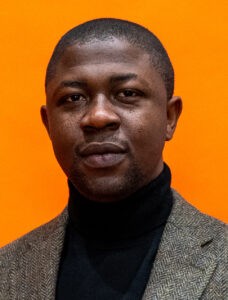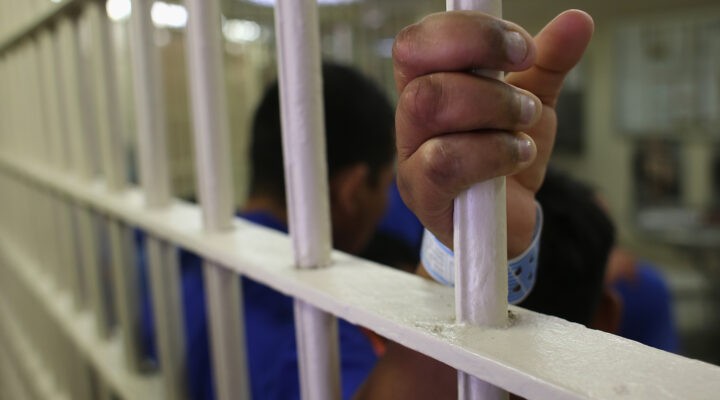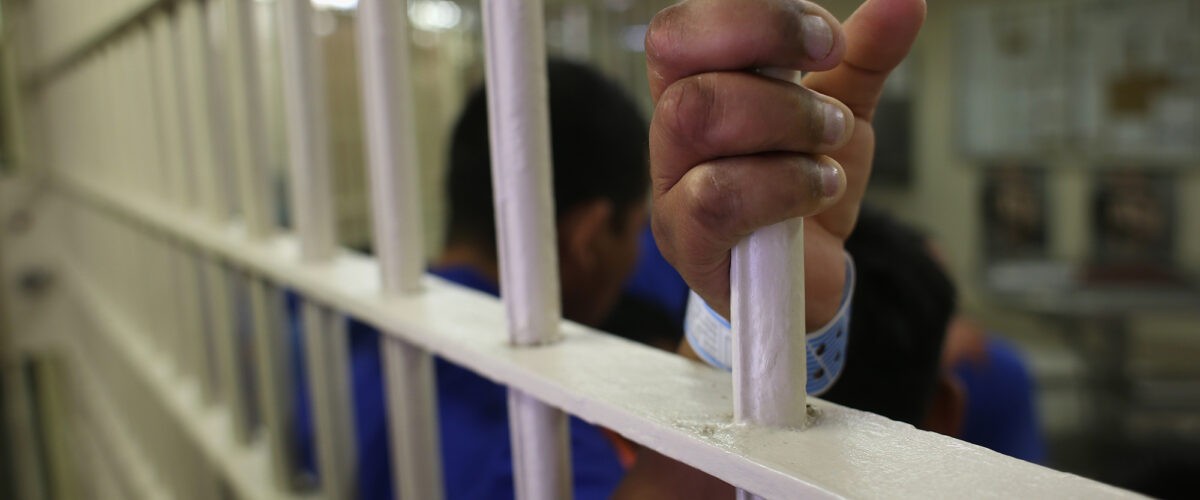In 2018, I was at JFK airport about to fly internationally for the first time after the grant of my refugee status in 2017. The line was very long — the definitive punishment for people who could not afford a TSA Precheck or VIP ticketing. Or for someone like me who intentionally likes to work for everything I earn, standing in line is an opportunity to meet someone new and start a conversation.
The woman in front of me — an American, 5 feet, 5 inches tall, wearing a blond wig and dark shades — was frustrated at the line not moving fast enough for her flight and was spewing swear words. I whispered to myself, “This is why I came to the airport hours before my flight.” Not knowing my words were louder than a whisper.

Edafe Okporo
She turned to me and said, “Where are you going to, hun? Back to Africa?”
I took a step back, turned and looked around me at the airport. I was like a black spot in white foam. The plane was heading to Amsterdam, and I felt like an imposter. Maybe I will never truly fit into this society, I said to myself in whispers so shallow no one could hear me this time.
This was a glaring reminder of my relationship with airports barely two years before that incident. On Oct. 28, 2016, I got on a plane in Cairo traveling to JFK New York terminal 4 with no family or friends. I was coming here with the prospect of finding a better life.
When I arrived at the airport with a two-year visitor’s visa, I got the stamp on my passport to stay in the United States for six months as a visitor. I had nowhere to go, so I requested asylum at the border. Unfortunately, the U.S. has no space (place) for immigrants seeking refuge; I had to be detained by immigration. The officers placed handcuffs on my hands, shackles on my waist and feet, and I was thrown into a bus and driven to a detention center in New Jersey.
“I stayed in Immigration Customs Enforcement detention for five months and 14 days, cleaning dishes and the kitchen floor for a dollar a day.”
I stayed in Immigration Customs Enforcement detention for five months and 14 days, cleaning dishes and the kitchen floor for a dollar a day. The money I made for a week of work afforded me 2 minutes, 30 seconds of call time to Africa. If I decided to trade the call time for an opportunity to purchase a commissary item, it afforded me two noodle packs or soups and one tin of sardine fish.
The detention center had a cut on the roof where sunlight can pierce through. That was the only source of sunlight. Those who are athletic could have an hour a day to go out to the volleyball court with a bigger opening for rain, sleet and snow to fall through. Twenty-four hours a day, seven days a week, we heard the sound of planes about to land at Newark Airport just a quarter-mile away.
Life in detention and the racial connotation of the woman at the airport because I am Black is consistent with the U.S. immigration custom enforcement treatment of new immigrants’ migration to America. The idea of America being a welcoming place for immigrants is a fallacy; America welcomed immigrants because it helped build Western infrastructure. Now, we truly see the reaction to immigrants in America the same way our forefathers did by creating laws that explicitly bar a certain type of immigrant to America (see the Chinese Exclusion Act).
I have come to my conclusion that America is not just a country of immigrants. I see America as a place of refuge for millions of people looking for an opportunity to dream, to build a life for themselves and future generations. I was given that opportunity to create my life in a new country, and I am not going to shame an institution that I am part of.
“I see America as a place of refuge for millions of people looking for an opportunity to dream, to build a life for themselves and future generations.”
For every one person like that woman who told me to go back to Africa, there are millions more who want me to stay in America. Hence my plea to Americans: For us to properly address the issue of immigration reform in America, we must address our relationship with race in America.
No one tells a European immigrant to go back to Europe, nor do we see European children locked up in detention centers. The criminalization of Black, brown and Haitian immigrants stems from our fears, a sign of our lack of openness to difference. The population has subconsciously accepted the influx of white immigrants and considered Black and brown people as being from “shit-hole” countries. There appears to be a distinction on who deserves to be an American.
My plea is for the U.S. immigration system to seize the opportunity of a global shutdown to revamp our system of screening immigrants at our border to be less biased and more welcoming of immigrants in a holistic measure rather than treating newcomers as criminals.
Title 42 is un-American, and the Biden administration must change it immediately. It is power dynamics at play of who is deserving to come to America. Asylum is the law of the land, passed by Congress in the year 1980 to protect people who fear persecution in their home country. The Black and brown people at our southern border are coming the right way.
If ICE had returned me to my home country and denied me the opportunity to see an immigration judge, I cannot imagine where I would be now, maybe dead!
“If ICE had returned me to my home country and denied me the opportunity to see an immigration judge, I cannot imagine where I would be now, maybe dead!”
I dreamed of America as a child; I saw America as a beacon of hope, a shining light to the world. Upon arriving here and learning the history of America, I have come to my conclusion. For me, America is a place of refuge for millions of people looking for an opportunity to dream, to build a life for themselves and future generations.
Since the onset of the pandemic, we’ve seen that no one has an idea of what will happen tomorrow. And with the recent evacuation of Afghans from Kabul, we now see refugees across the globe. We can see that recurring theme. Tomorrow for anyone can be like that of the persons we are trying to protect today.
Edafe Okporo is the author of ASYLUM, A Memoir and Manifesto. He is a global gay rights activist and founder of The Pont. As U.S. mobilization director for Talent Beyond Boundaries, he is one of the country’s most visible voices on the issue of displacement and directs programs to win labor mobility pathways for refugees nationwide. A graduate of Enugu State University and the school of Business at NYU, he currently lives in New York City. Follow him on Twitter @ edafeokporo or at www.edafeokporo.com.
Related articles:
Once again, immigration reform gets kicked to the curb by Senate
In addition to the ethical mandate, immigration is ‘a short-term way to boost economic growth’
Immigration advocates furious with Biden administration over Remain in Mexico policy


